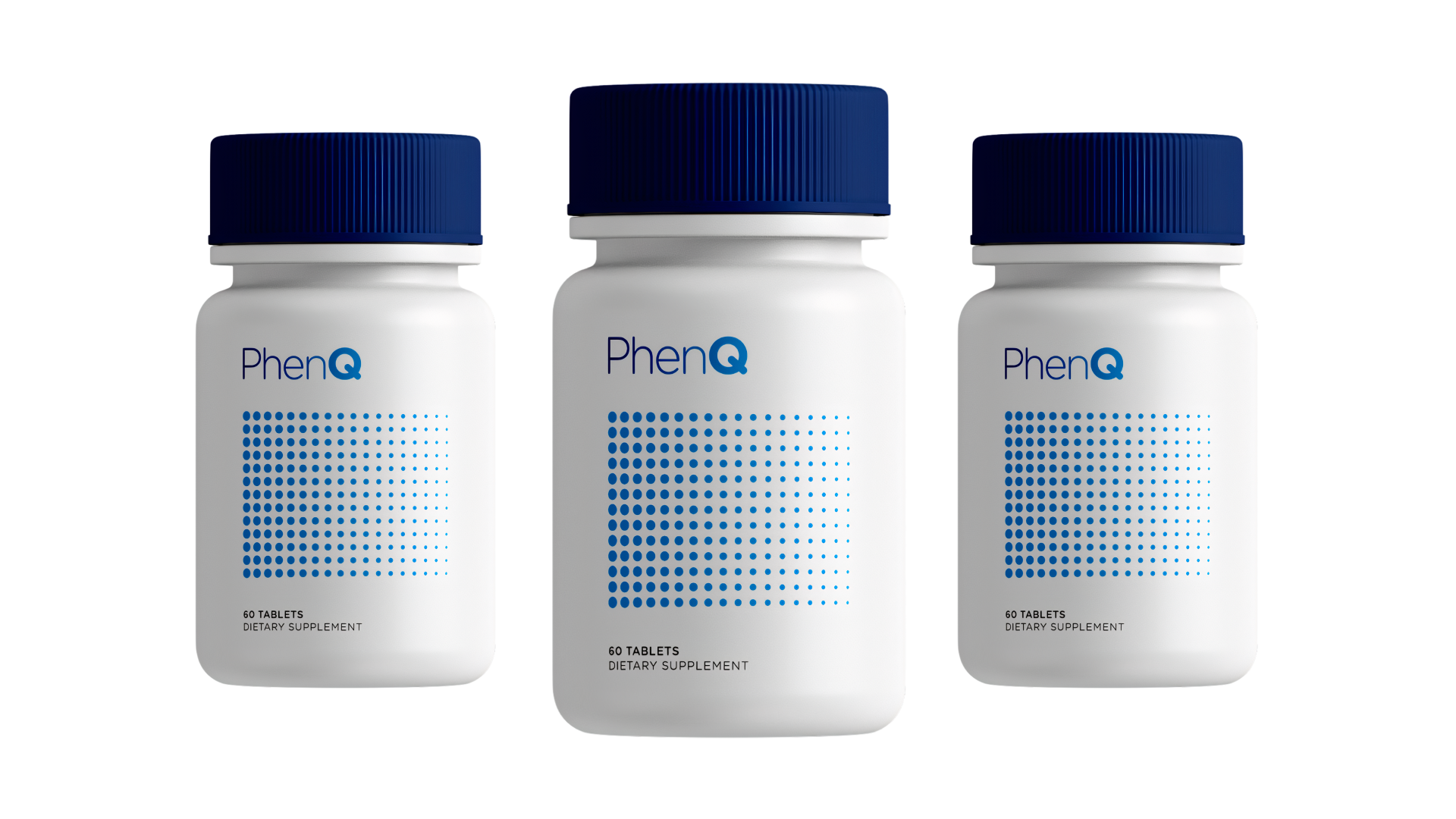What you'll learn in this blog... |
Are you looking at prescription weight loss pills to shed those unwanted pounds? But are you also apprehensive about their safety or how effective they are?
Don't worry. We're here to demystify all things weight loss pill-related as we discuss which pills work, how they work and whether there are alternative drugs to help you achieve the weight loss you want—your way.
After all, weight loss is a personal journey and finding the right products to suit your needs and lifestyle is as important as the outcome, right?
Ready? Let's go.
Why use weight loss pills?
Here we’re going to look at why people use prescription weight loss drugs as well as over-the-counter (OTC) weight loss drugs—because the two are very different.
Let’s dive in.
Why people use prescription weight loss medications
There are a few reasons why people might use weight loss medications…
Health conditions
Prescription weight loss pills are commonly prescribed when individuals have specific health conditions linked to obesity and being overweight, like diabetes, high blood pressure, heart disease or sleep apnea.
Prescribed weight loss drugs are applied as anti-obesity drugs and address not only weight loss but also alleviate the symptoms of the associated health conditions.
Patients who take weight loss medications of this kind are expected to also adopt healthy lifestyle changes in order to lose weight and reach a healthy body mass index.
Conventional approaches may not work
Many people struggle with weight loss despite trying conventional approaches like eating a healthy diet and exercising.
In some cases, individuals may have a slower metabolism, hormonal imbalances, or genetic predispositions that mean that traditional weight loss methods don't work for them as easily as for others.
As a result, they’re prescribed weight loss pills to provide extra assistance by suppressing appetite, increasing metabolism, or reducing nutrient absorption.
It's important to note that weight loss drugs prescribed by a doctor are regulated by the Food and Drug Administration (FDA) and are generally approved for short-term use.
These drugs should always be used in conjunction with a comprehensive weight loss plan, including lifestyle changes and regular medical supervision. They should never be taken by anyone without a prescription.
Why people take OTC weight loss drugs
As you may know, there are also weight loss supplements and weight loss pills out there that people use to combat weight gain without having to request a prescription.
They are known as over-the-counter products, and you can buy them without a prescription from various sources like pharmacies, supermarkets, or online retailers.
These ‘diet pills’ are a popular choice for many due to the following reasons…
Availability and convenience
Over-the-counter weight loss drugs are really easy to purchase, which makes them appealing to those who don't want to visit a healthcare professional or go through the prescription process.
Weight loss and gain are sensitive issues—and many people are embarrassed to discuss it, even in a professional setting.
Personal preference
Some people prefer over-the-counter weight loss drugs because of personal beliefs or cost considerations.
They want to lose weight, but they want to try to do it their way first, before seeking medical help.
It's also true that sometimes people want a more natural approach to weight loss and care about what goes into their bodies. After all, when it comes to putting products in our bodies, the more natural the better, right?
NOTE: OTC weight loss drugs are not regulated as strictly as prescription medications, which means their safety, effectiveness, and potential side effects may be less well-established.
If you do go down this route, it's best to opt for reputable brands that use natural products and are made in FDA and GMP-approved facilities in the US and the UK, like PhenQ.
What are the best prescription weight loss pills?

Before we talk about the best weight loss medications, it's important to note that some come with certain restrictions of use. These include…
BMI requirements
Doctor-prescribed weight loss pills are often given to people with a high body fat percentage and a BMI above a certain threshold, typically 30 or higher for obesity and for health conditions related to obesity 27 or higher too.
Length of time
Weight loss medications may be prescribed for short-term use, usually a few weeks to a few months.
This depends on the specific circumstances of the individual and any medication they may already be on.
Health condition considerations
Your GP will consider your overall health condition and medical history before prescribing weight loss medications. Only a healthcare provider can tell you which medications are right for you and your circumstances.
Certain health conditions like high blood pressure, if you’re pregnant or have heart disease, will control which medications are available to you.
Absorption and metabolism
By orally ingesting the active ingredients in the weight loss pills, they are better absorbed through the digestive system and metabolized by the body.
The result? The medication is able to interact with various receptors and target mechanisms that relate to fat absorption, metabolic rate and appetite.
The best prescription weight loss pills
Let's take a look at some of the best prescription weight loss pills and break down how they work, which conditions they apply to, how long you can take them for and of course, the side effects.
So, which anti-obesity drug is best?
Orlistat

How Orlistat works
Orlistat works by inhibiting gastric and pancreatic lipases (enzymes responsible for breaking down fats in the digestive system).
By blocking the action of these enzymes, Orlistat prevents the absorption of fat from the diet and that leads to less calories consumed and, in turn, weight loss.
Orlistat's Phentermine
Orlistat is primarily used in the treatment of obesity, for those with BMI of 30 and beyond. It may also be prescribed for overweight individuals with a BMI of 27 or higher who have other risk factors like diabetes or high blood pressure.
The health conditions necessary for Phentermine prescription
This really depends on the patient's weight loss goals and their individual factors.
It might be prescribed for a couple of weeks to kickstart weight loss. But other times, a healthcare professional may prescribe it long-term so that weight management is easier to maintain.
It's very important to only use the dosage states.
Clinical study with Orlistat
A clinical study published in the Journal of the American Medical Association examined the efficacy of Orlistat in a group of obese patients.
The study included 391 obese men and women who were randomly assigned to receive either Orlistat (120 mg three times daily) or a placebo for two years.
All participants were also instructed to adhere to a reduced-calorie diet and participate in a supervised exercise program.
The study found that at the end of the two-year period, the group taking Orlistat in conjunction with a reduced-calorie diet lost an average of 8.5 kg (18.7 lbs), while the placebo group lost an average of 5.4 kg (11.9 lbs).
The conclusion of the study is that Orlistat can effectively enhance weight loss when used in conjunction with a reduced-calorie diet and exercise program.
The side effects of Orlistat
The most common side effects of Oralist are gastrointestinal-related:
- Fatty stools
- Increased frequency of bowel movements
- Flatulence
- Abdominal pain
- Nausea
- Headache
- Sometimes more seriously, liver injury
Phentermine

Phentermine is a medication used for short-term weight management for people who are overweight and obese.
How Phentermine works
It’s classified as a 'sympathomimetic amine'. This means that Phentermine works by suppressing appetite and increasing energy expenditure through stimulation of the release of norepinephrine in the brain.
The health conditions necessary for Phentermine prescription
Phentermine is mostly used for people with a body mass index (BMI) of 30 or higher, or those with a BMI of 27 or higher with weight-related complications.
How long do you take Phentermine for?
Phentermine is generally prescribed for a short time, up to 12 weeks, alongside a calorie-reduced diet.
It isn't recommended for long-term use as the patient may develop a dependence on it and may also become tolerant to its effects.
Clinical study with Phentermine
Clinical studies have shown that Phentermine can significantly reduce hunger and increase feelings of fullness as it works as an appetite suppressant.
Plus, a randomized controlled trial published in The New England Journal of Medicine evaluated the efficacy of Phentermine in combination with a reduced-calorie diet.
The study included 108 obese adults who were randomly assigned to receive either Phentermine (30mg once per day) or a placebo for 36 weeks.
All participants were also enrolled in a lifestyle intervention program that included weekly dietary counseling and regular exercise.
The study found that at the end of the 36-week period, participants in the Phentermine group lost an average of 12.6 kg (27.7 lbs), while those in the placebo group lost an average of 5.6 kg (12.3 lbs).
Also, 86% of participants in the Phentermine group achieved more than 5% weight loss, compared to 17% in the placebo group showing it can be an effective treatment for obesity.
The side effects of Phentermine
Phentermine, when used as a weight management medication, can potentially have several side effects.
Common side effects of phentermine include…
- Dry mouth
- Headaches
- Weakness
- Dizziness
- Trouble breathing
- Difficulty sleeping
In rare cases, more serious side effects can occur with the use of phentermine.
These can include…
- Heart valve disease
- High blood pressure in the lungs (pulmonary hypertension)
Qsymia
This orally prescribed drug is a weight loss medication that contains both drugs: phentermine and topiramate.
How Qsymia works

It's not totally known how this drug works, but Phentermine is believed to work by suppressing appetite, and topiramate is an anticonvulsant that is thought to increase feelings of fullness—they work together to achieve weight loss in this way.
The health conditions necessary for Qsymia prescription
Like the other prescription weight loss pills we've covered, Qsymia is used to treat obesity in adults with a body mass index (BMI) of 30 or higher, or those with a BMI of 27 or higher with at least one weight-related issue like pre-diabetes or type 2 diabetes.
How long do you take Qsymia for?
The recommended duration for taking Qsymia really depends on the patient's weight loss goals and their individual response.
Initially, it's recommended to take the dose of 3.75 mg/23 mg per day for 14 days. Then it's increased to Qsymia 7.5 mg/46 mg per day.
Clinical study with Qsymia
Clinical trials have shown that Qsymia, in combination with a reduced-calorie diet and increased physical activity, can lead to impressive weight loss compared to placebo.
In a study, patients taking the highest dose of Qsymia (15 mg phentermine/92 mg topiramate) experienced an average weight loss of around 10% of their body weight after one year.
Additional studies have shown similar results, with patients on Qsymia experiencing greater weight loss compared to those on placebo.
Side effects of Qsymia
Qsymia has some common side effects…
- Tingling in the hands and feet
- Dizziness
- Altered taste
- Insomnia
- Dry mouth
- Constipation
There are also serious side effects, like…
- Increased heart rate
- Mood changes
- Vision problems
- Cognitive difficulties
Are there alternatives to prescription weight loss pills?
Yes, there are plenty of alternatives to weight loss pills prescribed by a healthcare provider.
And, you know a few of them already.
Lifestyle changes

Making changes to your diet and increasing physical activity are important for weight loss long term and weight management.
If you focus on consuming a balanced diet rich in fruits, vegetables, lean proteins, and whole grains while getting in plenty of positive movement each day—you’ll start to see those pounds melt away.
Dietary supplements
Certain over-the-counter dietary supplements may aid in weight loss and contain vitamins and minerals that help your overall nutritional profile.
Going with reputable brands and ensuring they contain natural ingredients means you are more likely to get real and reliable results, safely.
Why are natural weight loss supplements best?
Natural is always better, in every instance. Sunlight over artificial light, real fruit over fruit concentrate…the list goes on. The same goes for weight loss products.
Let's take a look at why natural weight loss supplements are better for you…and your body.
Safety
Natural ingredients are often perceived as safer compared to synthetic or artificial ingredients found in some supplements.
Many people feel much more comfortable taking products from plants, herbs or natural sources because the body can easily break them down—they’re not toxic and have fewer side effects as a result.
Potential health benefits
Some natural ingredients used in weight loss supplements may have additional health benefits like certain herbs and spices known for their antioxidant properties or potential to support overall wellbeing.
Meet PhenQ
If you want a scientifically-backed approach to shedding the pounds that doesn't involve a trip to the doctor and a prescription and does promote weight loss with its natural ingredients, then take a look at PhenQ.
This weight loss supplement compliments your weight loss journey perfectly alongside healthy eating, a low-fat diet and exercise.
These little diet pills have been specifically designed to boost metabolism, burn fat, and make you feel fuller for longer with their carefully curated natural formula.
Not only can PhenQ boost your body’s metabolic and thermogenic rates it can also stop the production of new fat cells, curb your appetite, boost your energy and improve your mood.
But don't just let us tell you. Experience it yourself with PhenQ today—why wait?



